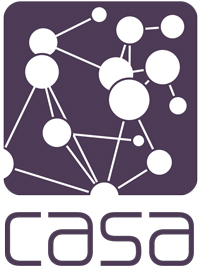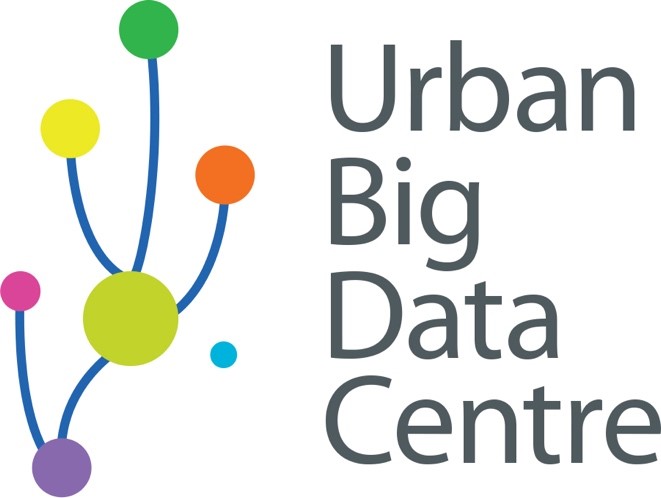Events
We are organizing a workshop at the International Environmental Modelling & Software Society's Biennial Congress, which is being held at the Kellogg Hotel and Conference Centre at Michigan State University's East Lansing Campus from 23-27 June 2024. The workshop will build on our earlier visioning workshops to develop insights into how transformative change in agent-based modelling practice could be realized through reimagined software architectures and institutions supporting high-performance computing use. Look out for WSF2 in the conference schedule!
The "Roadmap to Agent-Based Modelling at Exascale" workshop on 29-30 April 2024, the Clarice Pears Building, University of Glasgow. This workshop follows on from visioning workshops that took place at the Social Simulation Conference (September 2023) and UCL (November 2023) to outline what needs to be done to bring those visions into reality. Attending the earlier workshops is not necessary to make a valuable contribution to the workshop at the University of Glasgow.
Provisional agenda:
29 April
10:30 Arrival, registration and coffee
11:00 Welcome and introduction to the workshop
- Gary Polhill (The James Hutton Institute) – A roadmap towards exascale agent-based modelling: A brief overview of the ExAMPLER project
- Richard Milton (CASA, University College London) – Identifying the crucial challenges for ABSS at exascale
11:30 Experts' experiences using high-performance computing with agent-based models
- Peter Challenor (Exeter) – Gaussian process emulation: a tool for computationally expensive modelling
- Louise Kimpton (Exeter) – Gaussian Process Emulation with Agent Based Models: A Worked Example
12:30 Lunch
13:30 Experts' experiences continued
- Diana Suleimenova (Brunel) & Arindam Saha (UCL) Applications of Exascale Agent-based Modelling: Predicting Migration Patterns and Infectious Diseases
- Brief presentation by Warwick Economics and Development (Alex Owen-Doyle and Andrew Ledger) on their work evaluating the Strategic Priorities Fund ExCALIBUR Programme (through which ExAMPLER is funded)
- Sarah Wise (CASA, UCL) Complex symptoms: understanding epidemics from the perspective of complexity science
14:30 Coffee
14:45 Workshop
- Introduction by Michael Batty (CASA, UCL). Exascale requirements as identified in the previous 'visions' workshops; synergies with other areas – e.g. econometrics, microsimulation, housing and transport
15:00 Group work
- What needs to be done to achieve parallelization / accelerator exascale Agent-Based Social Simulation?
15:30 Group discussion
- Drafting a roadmap for exascale ABM
16:45 Wrap-up
17:00 Close of day 1
19:00 Workshop dinner, Kelvin Suite, Grosvenor Hotel
30 April
09:00 Arrival and coffee
09:30 Group work
- How to get from here to there – migration of tools, development of new tools, processes for ABSS modelling?
- Evolution of existing methodology into exascale ABM. Revolutionary ideas for changing how ABM is achieved at exascale. What are the science drivers for exascale ABM?
11:30 Coffee
12:00 Presentation of group work
13:00 Lunch
14:00 Plenary discussion and next steps
15:00 Finish
We are offering a free two full-day training course (29 February and 1 March 2024) in using HPC with agent-based models (with a particular focus on NetLogo). This is a 'draft' course (manage your expectations accordingly) based on a presentation used at Hutton to teach post-docs and Ph. D. students how to use our cluster with their agent-based models.
In-person and on-line options are available. There are places for approximately 10 in-person attendees in total, who will need to make their own travel and accommodation arrangements, and pay for these themselves.
Course timetable:
All times are in GMT (UTC+0)
Thursday 29 February 2024
09:00-09:30 Arrival/testing AV/VC and coffee for those present
09:30-10:30 Preparing a NetLogo model to run on HPC. Read ahead.
10:30-11:00 Break
11:00-12:00 Understanding your HPC admin and how to help them help you. Read ahead / tool.
12:00-13:00 Lunch
13:00-14:00 Guest lecture -- Diana Suleimenova, Brunel University: "Bringing agent-based simulation applications to the exascale using the SEAVEA toolkit"
14:00-15:00 Everything you didn't want to know about the Java Virtual Machine but now have to, Secure Shell, and running NetLogo from the command line
15:00-15:30 Break
15:30-17:00 Unix shell scripting
18:30-20:30 Complementary dinner for those attending in person (venue to be decided)
Friday 1 March 2024
09:00-09:30 Arrival, AV/VC check and coffee
09:30-11:00 Unix shell scripting and writing SLURM scripts
11:00-11:30 Break
11:30-12:30 Some (possibly) helpful tools. Read ahead.
12:30-13:30 Lunch
13:30-14:30 Guest lecture -- Diana Suleimenova, Brunel University: "Hands-on tutorial: Executing agent-based forced displacement simulations on ARCHER2"
14:30-15:15 Running and monitoring your experiment
15:15-15:45 Coffee
15:45-16:45 Working with sensitive data. Read ahead.
16:45-17:00 Feedback and close
What you will need:
You will need a laptop, on which you have at least the following installed (negotiate with your IT department accordingly if you have institutional constraints):
- Windows laptops:
- Up-to-date (version 6.3 or later) NetLogo. Ideally, you would have permission to modify files in the installation folder.
- One of the Windows Subsystems for Linux (e.g. Ubuntu)
- A text editor suitable for coding -- e.g. Notepad++, Visual Studio Code, or VSCodium. NOT Notepad or Wordpad -- these are unsuitable.
- May not be necessary to install separately, but make sure you have ssh and/or PuTTY installed.
- Mac laptops:
- Up-to-date (version 6.3 or later) NetLogo. Ideally, you would have permission to modify files in the installation folder.
- Command Line Tools for Xcode (or Xcode)
- If you've not installed XCode, then a text editor suitable for coding. Versions of Visual Studio Code or VSCodium are available for Macs, as, seemingly is Brackets. There is also Sublime and CodeRunner, but these require you to pay for a licence. NOT TextEdit -- this is unsuitable.
- Linux laptops:
Apply to attend:
To apply to attend, please send an email to gary.polhill@hutton.ac.uk with the following information:
- Who you are and where you work
- Brief motivation for attending and what you hope to get out of it
- Whether you want to attend in person (we are hoping that you'd actually get to run an ABM on a cluster) or remotely (you probably wouldn't)
- If in person, details of any dietary restrictions or accessibility adjustments you need.
Acknowledgements:
This course is being done as part of the ExAMPLER project, funded by the EPSRC, with support from the Scottish Government's Strategic Research Programme Topic on Large-Scale Modelling.
Following on from the workshop we held at the Social Simulation Conference, we are inviting people to attend a two-day workshop in London to build on co-constructed visions for exascale computing supporting agent-based modelling. The abstract for the workshop is provided below.
Exascale computing is high-end computation entailing 10^18 (a billion-billion) floating-point operations per second (FLOPS). By comparison, a modern laptop is capable of roughly a billion FLOPS. The UK is planning to commission an exascale computer, and the Engineering and Physical Sciences Research Council has developed the ExCALIBUR programme to prepare the research community. As part of this, the Exascale Agent-Based Modelling for PoLicy Evaluation in Real-time (ExAMPLER) project is undertaking a gap analysis to investigate the needs of the empirical agent-based modelling community in using an exascale computing facility. In terms of raw numbers, the computer speeds entailed could transform agent-based modelling, as simulation experiments that take several days or weeks on existing high-performance computing facilities could be completed in under a second at exascale. However, typical-case agent-based modelling is still done on personal computers; cloud and cluster computing with agent-based models is the exception rather than the rule. This workshop will explore with participants their transformative long-term visions for agent-based modelling underpinned by exascale computing, along with associated software and institutional requirements. We focus on agent-based modelling applied in the social sciences, where collaborations with industry and policy, particularly in supporting decision-making in complex environments, are a common use-case for agent-based models.
ExAMPLER will be holding a workshop at the Social Simulation Conference in Glasgow. The title of the workshop is The transformative potential of exascale computing for agent-based modelling. Hope to see you there!




